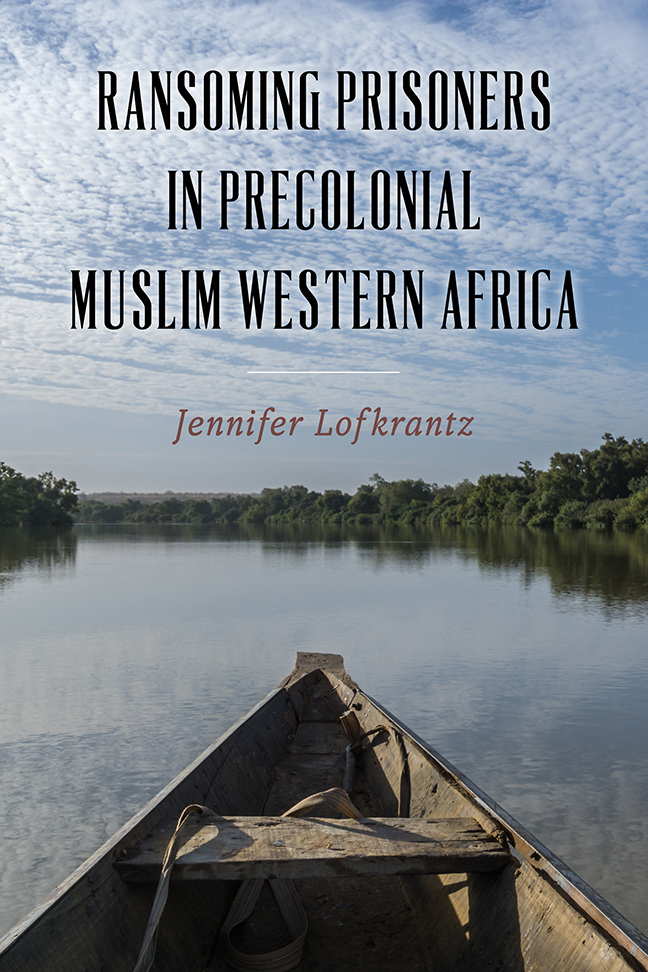Book contents
- Frontmatter
- Contents
- Tables
- Acknowledgments
- Introduction
- One Islamic Discourse on Slavery and Ransoming before 1800
- Two The Policy and Practice of Ransoming in the Maghrib
- Three Jihad, the Sokoto Caliphate, and Ransoming
- Four The Jihad of ‘Umar Taal and Its Ransoming Nonpolicies
- Five The Negotiation and Practice of Ransoming Prisoners
- Conclusion
- Bibliography
- Index
Four - The Jihad of ‘Umar Taal and Its Ransoming Nonpolicies
Published online by Cambridge University Press: 10 January 2024
- Frontmatter
- Contents
- Tables
- Acknowledgments
- Introduction
- One Islamic Discourse on Slavery and Ransoming before 1800
- Two The Policy and Practice of Ransoming in the Maghrib
- Three Jihad, the Sokoto Caliphate, and Ransoming
- Four The Jihad of ‘Umar Taal and Its Ransoming Nonpolicies
- Five The Negotiation and Practice of Ransoming Prisoners
- Conclusion
- Bibliography
- Index
Summary
An Umarian source describes ‘Umar Taal's relationship with Muḥammad Bello during his posthajj sojourn in the Sokoto Caliphate as “[Bello] received him with great respect; he lived in the sultan's home for three months, some say even longer, leading military expeditions on behalf of the Sultan until he possessed considerable riches in the form of slaves and other goods.” Moreover, according to another Umarian source, it was Taal who was the intellectual superior in the relationship with Bello, that Taal was considered Bello's teacher and that it was Bello who had adopted some of Taal's teachings. Yet, while it makes sense that Taal had an intellectual influence on Bello, evident from the numerous interactions between Bello and Taal and the mutual respect that they had for each other, it is also obvious that the Fodiye had an important impact on Taal's thinking. Taal had lived in Sokoto for six years and only left after he failed to secure its leadership after Bello’s death in 1837, which was instead secured by Bello's brother Abūbakar Atikū. When he left for the western Sudan to prepare for his own jihad, his entourage included a number of Sokoto followers (including influential women). Indeed, as B. G. Martin points out, it is from his time in Sokoto that Taal learned how to govern and to command armies while absorbing a lot of Fodiye thinking. Yet the roots and the support for the jihad are complex. Support for Taal's jihad arose out of disillusionment with the Fuuta Jalon and Fuuta Toro jihads, the hope offered by the success of the Sokoto jihad, and the confidence in the righteousness of Tijāniyya Islam. The roots of this jihad show the complexity and entwinedness of the threads of Muslim West African discourse, how they affected each other, and how intellectual thought was put into practice. Instead of reforming Fuuta Toro and Fuuta Jalon, Taal went out to establish his vision of the ideal Islamic state in the Bambara states of Kaarta and Segu and the Muslim state of Ḥamdallāhi based in the region of Māsina. Taal shared with the Tetravirate the core belief that one of the primary roles of a Muslim state is the protection of the rights of freeborn Muslims including protection from captivity.
- Type
- Chapter
- Information
- Ransoming Prisoners in Precolonial Muslim Western Africa , pp. 113 - 142Publisher: Boydell & BrewerPrint publication year: 2023

